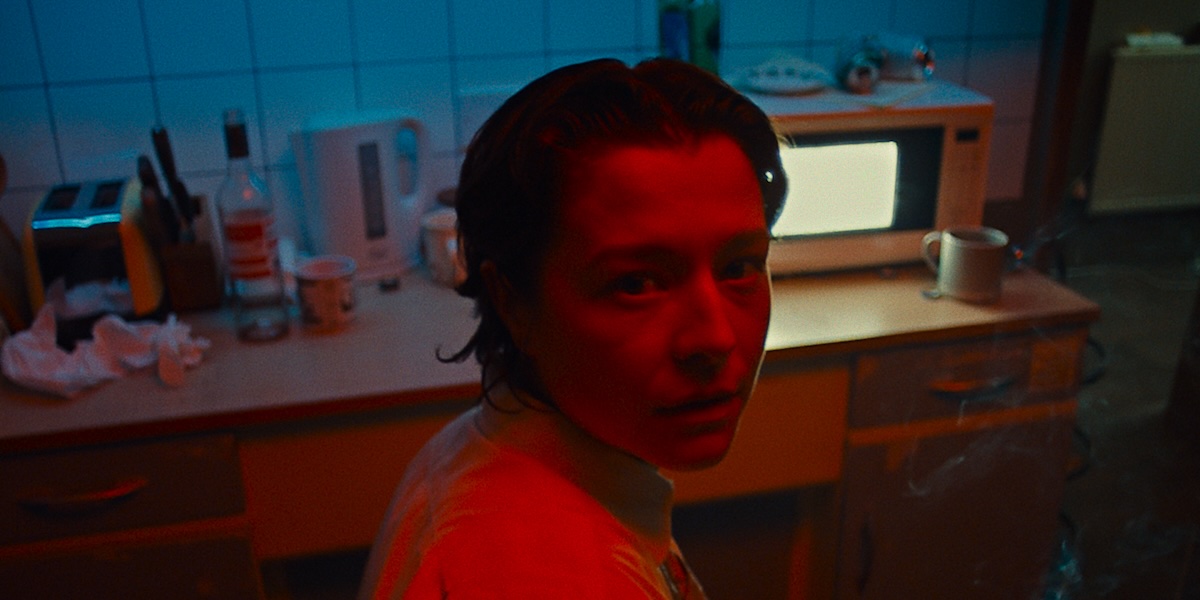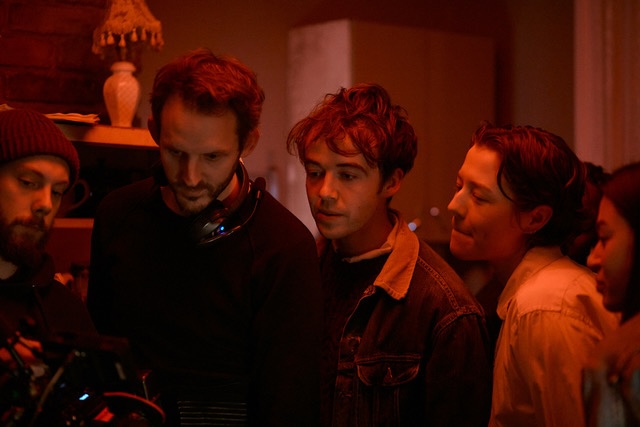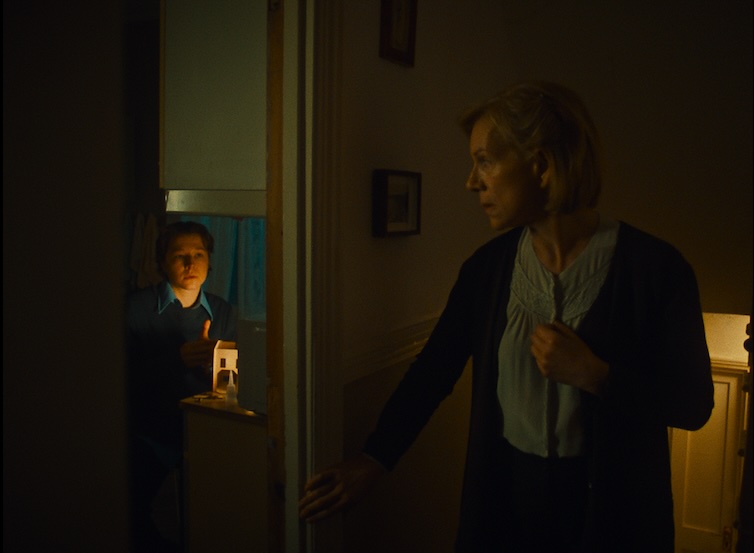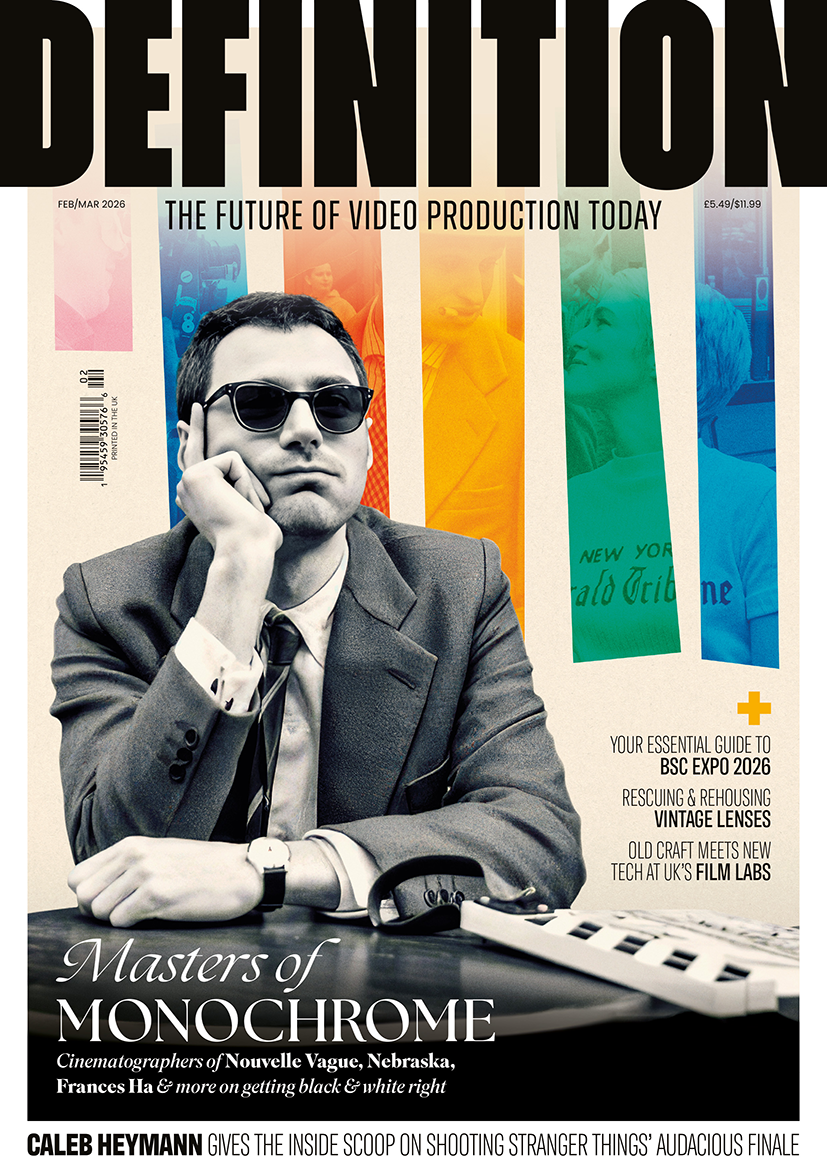
In short: Rhoda
Posted on Dec 2, 2024 by Katie Kasperson
We chat with writer-director Alex Lawther about his recently released second short film, Rhoda. Following two flatmates and light on dialogue, the short has a slight horror slant, largely thanks to its unsettling sound design
WORDS Katie Kasperson / IMAGES Sophie Williams
Solitude. Silence. Unease. These sentiments characterise Rhoda, the latest short by actor-writer-director Alex Lawther and a follow-up to For People in Trouble (FPIT). Starring Juliet Stevenson and Emma D’Arcy as Rhoda and Louis, respectively, the film epitomises communal spaces, interrupted routines and passive voyeurism – all seldom-advertised, yet inherent aspects of flat sharing.
“The tension between a person and a stranger they have welcomed into their house is a rich seam – and a complex one – to explore,” begins Lawther, who derived the film’s premise from an acting workshop. “The character of Louis is a particularly elusive one, but I thought that if Emma D’Arcy – with whom I made FPIT – was willing to play that part, the story would somehow make sense.” Unlike FPIT, Rhoda is largely silent: “The result was a lot stranger than I had imagined it would be,” Lawther admits. Though quietness often goes hand in hand with loneliness, it can also represent ‘a kind of relief’ – two themes explored in the film’s 18 minutes.
This lack of dialogue meant Rhoda would have a visually-led narrative. This was complemented by a disconcerting sound design: sporadic breathing noises that evoke a sense of dread, akin to the audio in Midsommar. “Sound design was a vital component of this film. I’d been told Nigel Heath was a genius, and this proved true,” Lawther enthuses. With cinematography by David Pimm, editing by Mdhamiri Á Nkemi and composing by Anna B Savage, “I could not have had more luck with my crew,” he states.
For Lawther, each project informs the next. “Rhoda was much harder, and more satisfying, for me during the editing stage than my first short,” he shares. “The story is told by images, each following the one that comes before, so the possible plot routes felt vast, which in turn felt exciting. I’d like my next project – perhaps a short, perhaps something longer – to be even simpler and more image-driven, perhaps even more abstract or less linear.”
Having been on either side of the camera, Lawther loves both ‘living inside stories’ and ‘being outside looking in too’. He wrote the first draft for Rhoda in April 2023, shot in January 2024 and wrapped post-production in August, all while balancing his own acting jobs. Now, he’s ‘chipping away at something longer’ while Rhoda enjoys a festival run, beginning with a premiere at BFI’s London Film Festival which ended in late October. “It was meaningful to have it open in the city I live in, where my friends are and where I could share it with a community I feel part of,” he expresses. To budding filmmakers and festival-goers, he offers this wisdom: “You’ll get rejected by most places; that’s the only thing you can be sure about. The important bit is getting your film made in the first place.”
Follow along on Instagram: @rhodashortfilm
This story appears in the December 2024 issue of Definition











